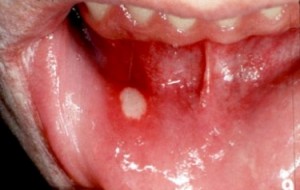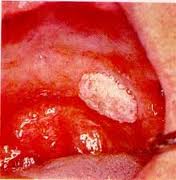Dr Nishan Dixit is the founder and principal dentist of Blue Court Dental. Patients enjoy his relaxed, friendly and gentle approach while experiencing his meticulous attention to detail. He has a special interest in providing smile makeovers, natural-looking white fillings and cosmetic braces, but also provides a range of treatments from preventative and general dental care to complex dental rehabilitation.
Latest posts by Dr Nishan Dixit (see all)
Bad breath, also known as halitosis, is a common problem that can affect anyone of any age. Most people have short periods of bad breath at some point, and it is estimated that up to 50% of people have persistent bad breath.
Causes of bad breath
Bad breath can have several causes:
Poor oral hygiene
The most common cause of bad breath is poor oral hygiene. Bacteria that coat your teeth, tongue and gums can cause plaque (the soft white deposit that forms on the surface of the teeth), gum disease and dental decay. These bacteria combine with saliva and food in the mouth, breaking down food particles and proteins. This releases an unpleasant smelling gas.
If you do not floss your teeth regularly, any food that is trapped between your teeth will be broken down by the bacteria, causing bad breath.
Morning bad breath
Most people have bad breath when they wake up in the morning. This is normal and occurs because the mouth dries up overnight. This slows down the flow of saliva that normally washes away food particles. Bacteria quickly break down any bits of food left in the mouth, and an unpleasant, stale smell is released.
Food and drink
Eating strongly flavoured foods, such as garlic, onions and spices, often cause your breath to smell. Strong smelling drinks, such as alcohol and coffee, can also cause bad breath. This type of bad breath is usually temporary and can be avoided by not eating or drinking these types of food or drink.


Medicines
Some medication can cause bad breath. Medicines that have been associated with bad breath include:
– Medicines used to treat angina
– Some chemotherapy drugs
– Tranquilisers
Smoking
If you smoke, your breath is likely to smell of stale smoke. As well as making your breath smell, smoking also causes staining and loss of taste and irritates your gums. This increases your risk of gum disease, another cause of bad breath.
Medical conditions
Bad breath can be caused by a medical condition, although this is rare. Dry mouth is a condition that affects the flow of saliva. This can cause bacteria to build up in the mouth, leading to bad breath.
- Other medical conditions that can cause bad breath include:
- Infections in the lungs, throat or nose
- Bronchitis
- Sinusitis
- Diabetes
- Liver or kidney problems
Crash dieting, fasting and low carbohydrate diets can also cause bad breath.
Treatment and prevention of bad breath
 The most effective treatment of bad breath is usually improving your dental hygiene. To avoid bad breath, keep your mouth and teeth clean.
The most effective treatment of bad breath is usually improving your dental hygiene. To avoid bad breath, keep your mouth and teeth clean.
– Regularly brush your teeth and gums. Choose a small to medium sized toothbrush with soft multi-tufted bristles and replace your toothbrush every 3-4 months. Your dentist is likely to recommend that you brush your teeth at least twice a day with fluoride toothpaste.
– Floss in between your teeth. Use dental floss to clean between your teeth and remove any trapped food that could cause bad breath and tooth decay.
– Keep your tongue clean. Use a separate tongue scraper to lightly brush your tongue.
 Regular check-ups with your dentist will make sure any plaque is removed from your teeth. It will also ensure any signs of gum disease are noted and treated early on.
Regular check-ups with your dentist will make sure any plaque is removed from your teeth. It will also ensure any signs of gum disease are noted and treated early on.




 The most effective treatment of bad breath is usually
The most effective treatment of bad breath is usually  Regular check-ups with your dentist will make sure any plaque is removed from your teeth. It will also ensure any signs of gum disease are noted and treated early on.
Regular check-ups with your dentist will make sure any plaque is removed from your teeth. It will also ensure any signs of gum disease are noted and treated early on.
 Mouth cancer is caused by an abnormal and uncontrolled growth of cells. It is a malignant growth that can occur in any part of the mouth. The Two most common symptoms of mouth cancer are:
Mouth cancer is caused by an abnormal and uncontrolled growth of cells. It is a malignant growth that can occur in any part of the mouth. The Two most common symptoms of mouth cancer are:



